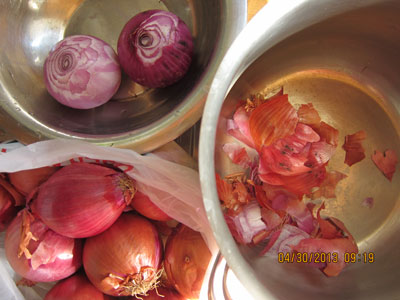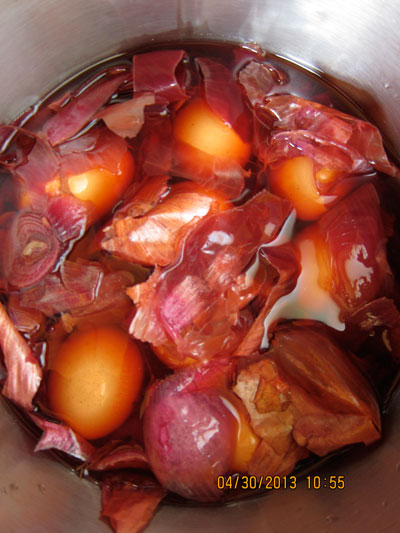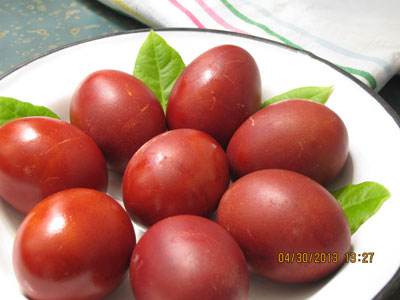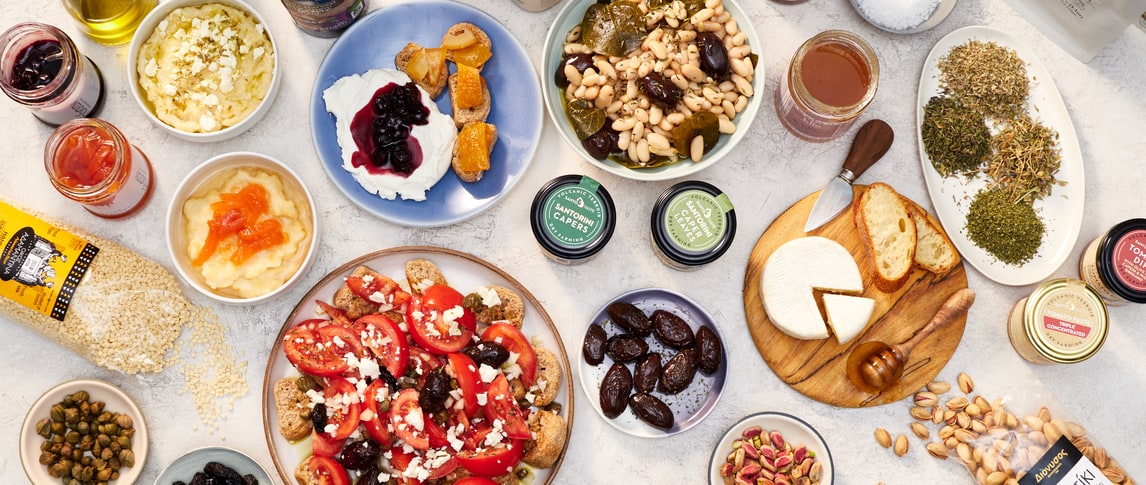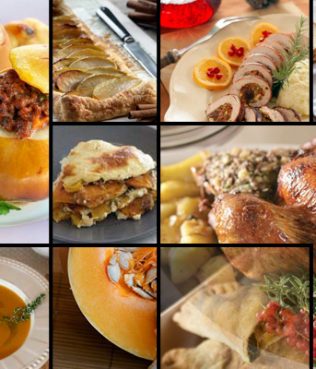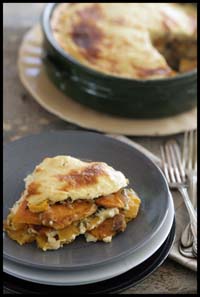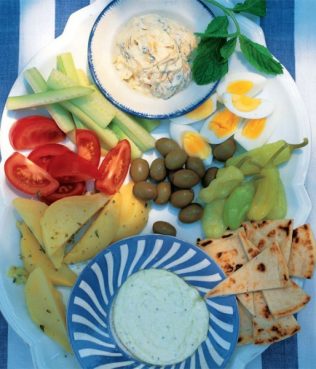Every year at Greek Easter, I usually buy the small packet of red powdered dye replete with a plastic glove and a packet of oil for shining up the eggs once they’ve been colored. We are lucky here on Ikaria, where we almost always spend Easter, because most of our neighbors have chickens and most of those chickens lay eggs….People in small communities all over Greece but especially on Ikaria are used to sharing or bartering, so around this time of year, sans hens of my own, I usually end up with enough to do all my baking and Easter egg dying. I almost always leave one or two fresh farm eggs aside, too, for my kids, who love the morning treat called ktipito avgo, literally a raw egg yolk whisked with sugar until it becomes thick and pasty and very delicious!
All those fresh eggs are too good to waste on commercial dye; if they crack and the color gets inside, it taints the egg. The dyes are nontoxic, sure, but they are still nothing but chemical dust. This year, for the first time, I opted to go the local, natural route: dying eggs with onion skins. It’s easy and the results are beautiful: not blood-red or crimson but deep darker red and completely safe.
I peeled 10 large red onions, which my neighbor Titika gave me. (Sharing….) I placed them in a pot with 2 tablespoons of vinegar and 4 or so cups of water. Next, I placed 12 eggs in the pot in one layer and covered them with some of the onion skins. (The eggs have to be at room temperature, not just out of the fridge.) Finally, I brought the whole mixture to a very slow simmer and as I write and still simmering, about 30 minutes in all. With a slotted spoon, I will strain the eggs, cool down the liquid and possibly dye some more tomorrow!
Of course, there’s the issue of what to do with 10 large peeled onions. Half of them are going into a kremmydomarathopitakia (translation: onion-fennel pies) and half of them will become an ouzo-onion-pepper marmalade (click here for the recipe), which I will serve on Greek Easter Sunday with both roasted lamb and a bit of local Kathoura goat’s cheese. And, of course, share with my neighbor, in the spirit of local tradition.
